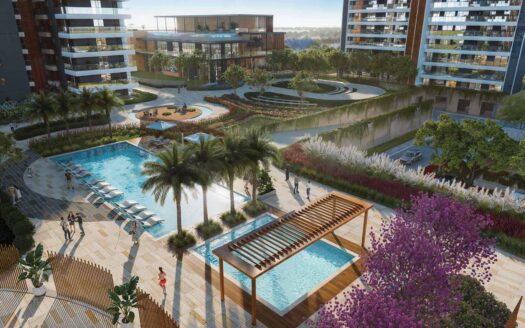How to Choose the Right Property for Your Needs

Choosing the right property is one of the most significant decisions you’ll make—whether it’s for personal living, investment, or starting a business. The property you choose will affect your lifestyle, finances, and long-term goals with countless options in the market and each offering unique features. How do you ensure you’re making the right choice?
This practical guide will help you find the perfect property based on your needs, preferences, and goals.
1. Identify Your Purpose
The first step in selecting the right property is understanding why you want to buy it. Ask yourself:
- Is it for your residence?
- Are you buying it as a rental investment?
- Do you plan to flip the property for short-term profit?
- Is it for commercial use?
Each purpose will influence your choice. For example, a home for personal use needs to match your lifestyle, whereas an investment property should focus more on return potential, location, and market demand.
2. Set a Clear Budget
Your budget will shape what kind of property you can afford and where you can afford it. Make sure to:
- Include hidden costs like registration fees, stamp duty, legal charges, and maintenance.
- Get loan pre-approval if you’re considering a mortgage.
- Consider long-term affordability, not just the down payment.
Avoid stretching your budget to the limit, especially if it’s your first purchase. Leave room for unforeseen expenses and emergencies.
3. Choose the Right Location
Location is everything in real estate. A great home in a bad location can turn out to be a poor decision. Think about:
- Proximity to work or school
- Availability of public transport
- Safety and crime rate in the area
- Nearby amenities like hospitals, markets, parks, and malls
- Future developments in the area that may impact value
For investment purposes, areas with high rental demand, infrastructure projects, or upcoming urban growth are typically better choices.
4. Define Your Must-Haves and Nice-to-Haves
Create a checklist of features that are non-negotiable and ones that would be nice to have. For example:
Must-Have:
- Minimum 3 bedrooms
- Parking space
- Close to a school
Nice-to-Have:
- Garden or balcony
- Modular kitchen
- Swimming pool or clubhouse
This helps you filter options quickly and make more focused visits or comparisons.
5. Consider the Property Type
Do you prefer an apartment, a villa, a townhouse, or a plot of land to build on? Each type has pros and cons:
- Apartments are low-maintenance but may come with restrictions and shared amenities.
- Villas or independent houses offer more space and privacy but often come with higher costs and maintenance.
- Plots offer flexibility but take time and effort to develop.
Think long-term. For instance, a young couple may be okay with a 1BHK now, but a 2BHK might serve them better in the next 5–10 years.
6. Check Builder’s Reputation and Legal Documents
If you’re buying a new property or under-construction project:
- Research the builder’s reputation and track record.
- Visit previous projects if possible.
- Make sure all legal documentation is in place: title deed, approvals, RERA registration (if applicable), encumbrance certificate, and more.
- Ask for a sales agreement, payment plan, and possession timeline.
For resale properties, verify ownership history and check if there are any pending dues or legal issues.
7. Evaluate Resale Value and Rental Potential
Even if you’re buying for personal use, it’s smart to consider how easy it will be to sell or rent the property in the future. Properties in well-connected areas with high demand tend to have better liquidity and higher appreciation.
If you’re buying for investment, calculate the return on investment (ROI) based on expected rent and price appreciation.
8. Inspect the Property Thoroughly
Always do a physical inspection before finalizing the deal. Things to look out for include:
- Structural quality: cracks, damp patches, plumbing, and wiring
- Ventilation and natural light
- Noise levels from nearby traffic or construction
- Age of the building and maintenance condition
- Security features like CCTV, gated entry, etc.
It’s worth bringing in a professional inspector for a detailed review—especially for older buildings.
9. Think Long-Term
Your needs might change in the next 5–10 years. Will the property still suit your lifestyle or serve its investment purpose?
Ask yourself:
- Will this area remain desirable?
- Is there room to expand or renovate if needed?
- Can you easily resell if your plans change?
Buying property is not just a present decision—it’s a future commitment.
Summary
Choosing the right property is a mix of personal needs, financial planning, and market research. It may feel overwhelming at first, but breaking it down step-by-step makes the process manageable and even enjoyable.
Don’t rush. Visit multiple properties, ask questions, and do your due diligence. The perfect property isn’t always the one that looks the best—it’s the one that fits you best.




